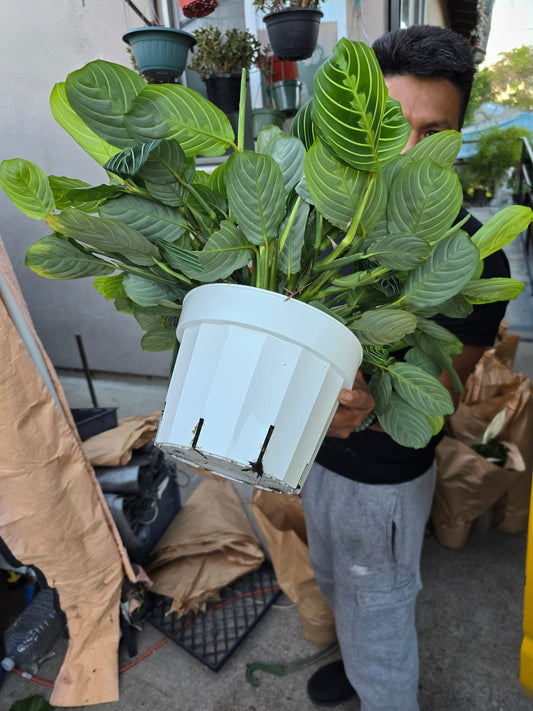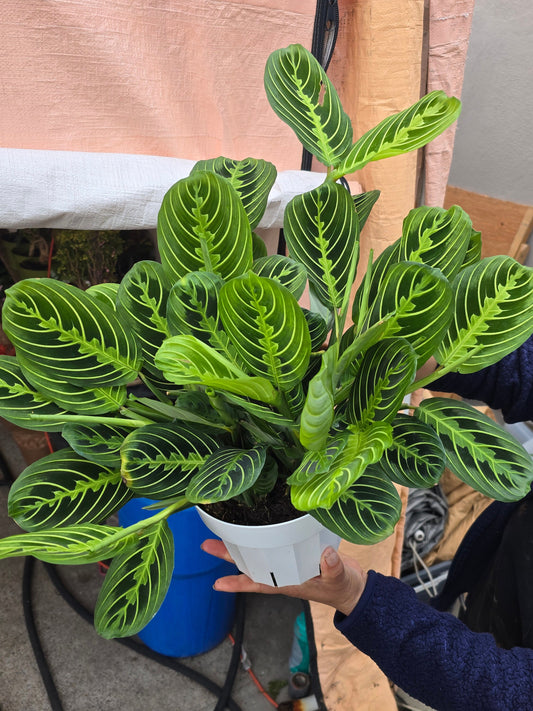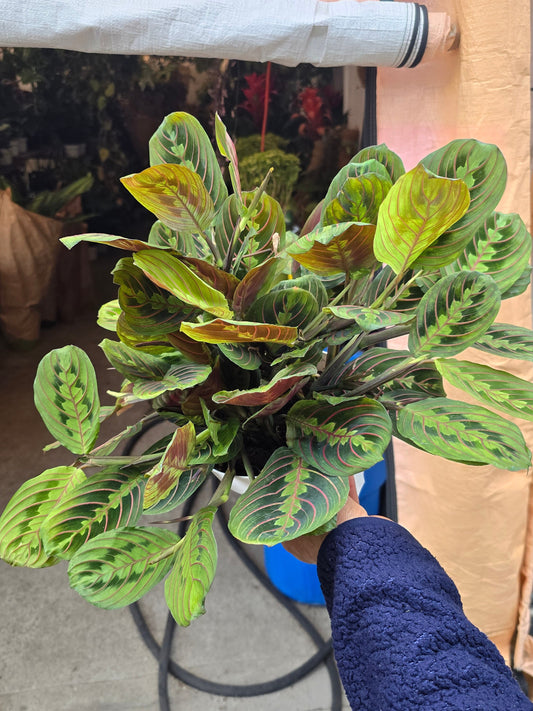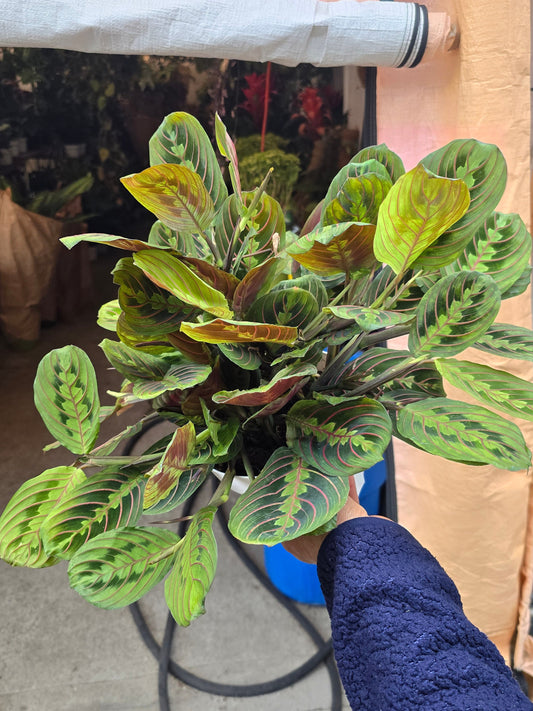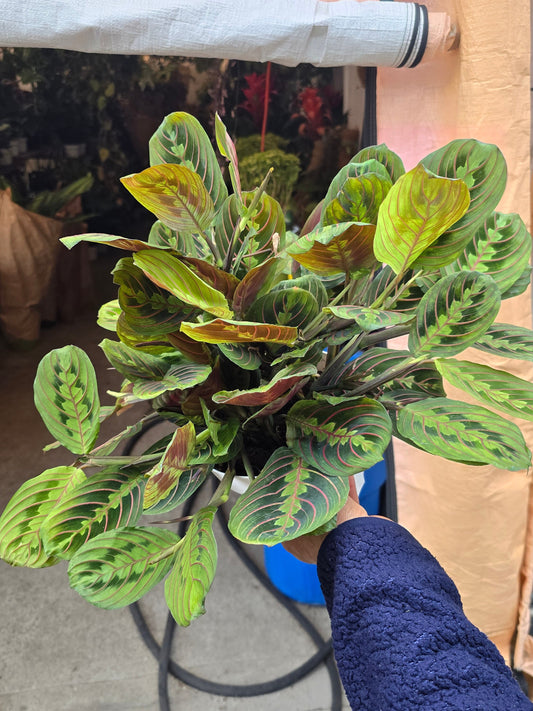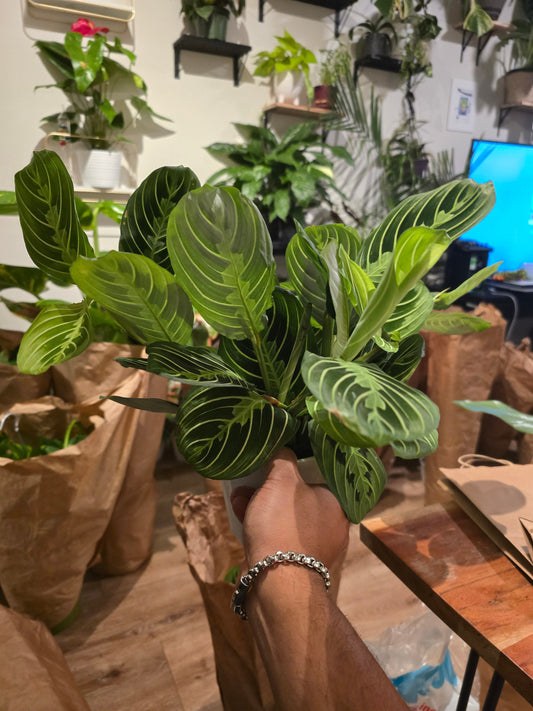Maranta Plants: A Guide to Care
Maranta plants, also known as prayer plants, are popular houseplants prized for their striking foliage. Their leaves often have a variegated pattern and can fold up at night, resembling praying hands.
Key Features:
- Colorful leaves: The leaves come in various shades of green, red, purple, and white, often with intricate patterns.
- Prayer movement: Maranta plants exhibit nyctinasty, meaning their leaves fold up at night and open in the morning.
- Low-growing: They are relatively small plants that can be grown on a tabletop or hanging basket.
Care Tips:
- Light: Marantas prefer bright, indirect light. Avoid direct sunlight, which can burn their leaves.
- Watering: Keep the soil consistently moist but not soggy. Allow the top inch of soil to dry out slightly between waterings. Use lukewarm water to avoid shocking the roots.
- Humidity: Marantas thrive in high humidity. Misting the leaves regularly or using a humidifier can help.
- Temperature: Maintain a temperature between 65-80°F (18-27°C). Avoid cold drafts and sudden temperature changes.
- Soil: Use a well-draining potting mix.
- Fertilizer: Feed your maranta plant with a balanced fertilizer during the growing season (spring and summer).
Common Maranta Varieties:
- Maranta leuconeura: This is one of the most popular maranta varieties, known for its striking foliage with dark green leaves and red or purple veins.
- Maranta tricolor: This variety has dark green leaves with red or purple veins and a silver-gray stripe down the center.
- Maranta kerchoveana: This variety has dark green leaves with a red or purple underside.


